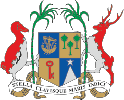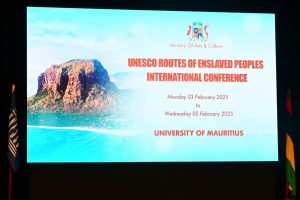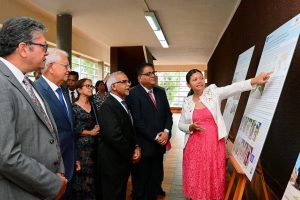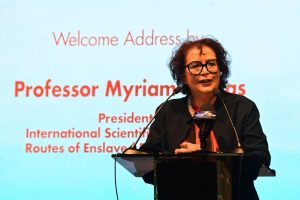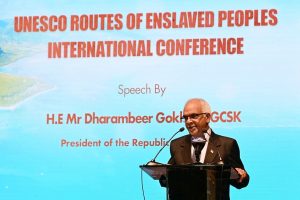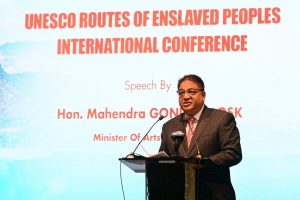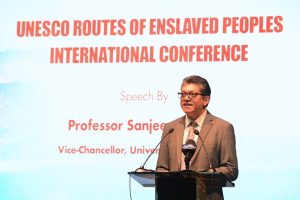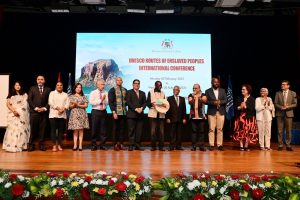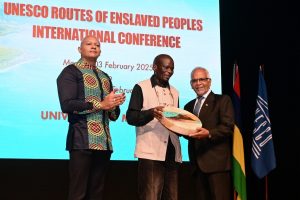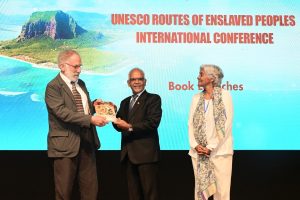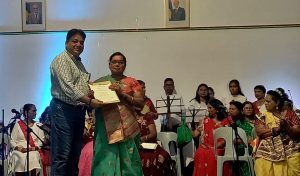International Conference on Unesco Routes of Enslaved Peoples
About the International Conference Unesco Routes of Enslaved Peoples Project Resistance, Liberty, Heritage in the Western Indian Ocean University of Mauritius, 3_ 5 February 2025
In 1994, the UNESCO launched its “Routes of Enslaved Peoples: Resistance, Liberty and Heritage” Project. The project has been instrumental during the three decades of its existence in producing innovative knowledge, developing international networks of scholars who study slavery and its legacy, and supporting memory initiatives on slavery, slave trading, and abolition. In doing so, the project has played a pivotal role in shattering the “silence” which has frequently surrounded the history and memories of slavery. During the last decade, for example, the project has shed considerable light on the multiple forms of bondage and dependence which predated colonial slavery in the Western Indian Ocean by helping to reveal and reconstruct the complex, multiethnic, and multidirectional slave trading networks which linked the eastern, northern, and western regions of the Indian Ocean world over the centuries. These networks played a seminal role in creating the multicultural societies which are a hallmark of life in many parts of the contemporary Indian Ocean world. Despite this progress, however, many countries and peoples continue to grapple with their own history of slavery and its enduring legacy.
This UNESCO conference will bring together scholars from different disciplines and parts of the globe to engage in the kind of critical discourse that is crucial to understanding the nature, dynamics, and legacy of slavery as the peoples of the Western Indian Ocean look to the present and their future. It will be held in the context of activities commemorating the 190th anniversary of the abolition of slavery in Mauritius on 1 February 1835. Participating institutions include the Ministry of Arts and Culture, the Ministry of Education, the National Commission for UNESCO, Le Chantier Association, the University of Dar es Salaam, the Slavery in Africa Network (SLAFNET), the Centre International de Recherches sur les Esclavages (CIRESC), and the International Scientific Committee (ISC).
Forty years have elapsed since Mauritius first hosted a conference on slavery in February 1985. This UNESCO Conference, scheduled from 3 to 5 February 2025, will bring together an international group of scholars with expertise in researching and writing about slavery in the Western Indian Ocean who are committed to expanding our knowledge and understanding of the slave experience in this part of the world, including discussing topics and themes that have hitherto been considered to be taboo. The conference will showcase the results of recent, innovative scholarship in order not only to reconstruct the lives of the millions of African, East Asian, Indian, Malagasy, Southeast Asian, and other peoples who experienced enslavement, but also to inspire future research on slavery and associated forms of coerced labour and the ways in which they shaped the world in which we live.
In addition to the presentation of scholarly papers, the conference will feature a poster exhibition and special session on the mapping of slavery-related sites in the Southwestern Indian Ocean. Various cultural events are also planned, including the inauguration of Mauritius’ first archaeological exhibition on slavery, a fashion show spotlighting African-inspired Mauritian fashion, the screening of a film of a newly discovered slave trading site on the Tanzanian coast, the launching of several recently published books on slavery in Mauritius and elsewhere, and a special screening of Ni Chaines Ni Maitres, a French film on slavery in presence of its director.
The conference’s sessions will cover the following topics and themes:
- The globality of slavery
- The history of the slave trade and slavery in Africa and the Indian Ocean World
- Mapping trajectories and sites associated with slavery and slave trading in the Indian Ocean
- The use of non-textual sources, such as oral history, in reconstructing the history, memory and identity of enslaved peoples and their descendants
- The archaeology of slavery in the Western Indian Ocean
- Memories of slavery and the slave trade
- The histories of Black/Creole descendants of the African diaspora
- Enslaved women and their descendants in the Indian Ocean world
- Slavery’s legacy in contemporary social relations and health
- Slavery in the visual arts, literature, dance, and music
- Reparations and compensation for slavery
The conference organizers plan to publish selected conference papers in an edited volume tentatively titled Slave Trade and Slavery in the Western Indian Ocean: New Research and Perspectives, either with UNESCO or in Ohio University Press’ distinguished Indian Ocean Studies series.
Conveners for the International Conference on UNESCO Routes of Enslaved Peoples Project:
- Myriam Cottias (CNRS, CIRESC, PHEEAC) President ISC
- Marie-Pierre Ballarin (Université Côte d’Azur, (SLAFNET)
- Thomas Vernet-Habasque (Université Paris 1 Panthéon-Sorbonne, IMAF, France)
- Salvatory Nyanto (University of Dar es Salaam)
- Vijaya Teelock (Member, ISC & Le Chantier, Mauritius)
